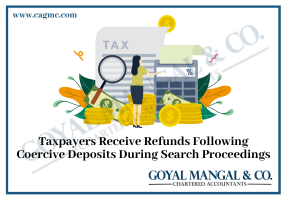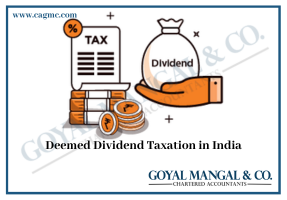
In the era of finance and investment, a novel aspect of gaining traction in India is the Social Stock Exchange (SSE). As the ancient investment narrative expands beyond profitability. The SSE term is poised to design how enterprises and investors perceive their roles in society. The emergence of SSE in India provides an important departure from conventional stock exchanges, prioritizing the integration of environmental, social, and governance (ESG) into investment decisions. This article will explain to you about the emergence of social stock exchanges in India.
| Table of Content |
Brief about the Social Stock Exchange
A Social Stock Exchange is gaining traction in the world; however, formal executions are still in the beginning stages and particular details might have evolved since then. The SSE is an innovative financial platform shaped to provide and encourage investments in businesses, which prioritize both financial returns and optimistic social environmental effects.
The key features of SSE:
- Transparency and reporting;
- Innovation and social entrepreneurship;
- Creation of long-term value;
- Global initiatives;
- Socially responsible investing;
- Social impact measurement;
- Dual objectives of balancing financial returns with social and environmental considerations;
- Support of government and regulatory authorities;
- Facilitation of impact investments.
Objectives of the Social Stock Exchange
Social Stock Exchanges are a financial concept, whose objectives are generally rooted in advancing sustainable and responsible investment practices. Here are the basic objectives, which are associated with SSE:
- Aligning capital with social effect;
- To promote transparency and disclosure of non-financial performance;
- To offer a dedicated marketplace where socially responsible investors may find opportunities to invest;
- To encourage long-term perspective in investing by promoting enterprises to adopt sustainable practices;
- Motivating responsible business practices;
- To foster innovation in effective measurement;
- Attracting ethical and effective investors;
- To reduce information between companies and investors by standardizing reporting on environmental and social effects;
- Have governmental and regulatory bodies support.
Eligibility Criteria of Social Stock Exchange
The eligibility criteria of SSE:
- Targeted section: Social businesses must target part of a less privileged and underserved population as it records lower performance in enhancement priorities of national and state governments.
- Predominance: There are three aspects, in which anyone can be fulfilled:
- At least 67% of the preceding three-year average expands has been done for giving eligible performances to people of the target segment; or
- People of a target population to whom the eligible performances have been given at least 67% of the forthwith preceding three years’ average of the whole consumer base; or
- At least 67% of the preceding three years of average revenues comes from offering performances to members of the targeted population.
- Eligible activities list for doing primacy of social effect:
- Encouraging employability; education and livelihoods;
- Provide training to motivate paralympic sports, rural sports, nationally identified sports, and Olympic sports supporting social businesses;
- To reduce poverty, inequality, hunger, and malnutrition;
- Make sure about sustainable environment, forest and wildlife conservation, addressing climate change such as adaptation and mitigation;
- To support social businesses;
- Enhancement of slum areas offers affordable housing and other interference to construct resilient and sustainable cities;
- To encourage health care such as sanitation, mental healthcare, and safe drinking water;
- Protection of national culture, art, and heritage;
- Disaster management such as rehabilitation, relief, and reconstruction performances;
- Encourage the welfare of displaced and migrant people.
What is a process of Not-for-profit organization can raise funds by Social Stock Exchange?
After registering of Social Stock Exchange, a not-for-profit may increase funds on SSE by:
- Donations by mutual funds schemes;
- Issue of Zero Coupon Zero Principal Instruments by public issuance or private instruments; or
- Any other means, which SEBI may specify in future.
Process of IPO (Mainboard and SME)
Here is an IPO process from filing Draft Red Herring Prospectus (DRHP) to the listing shares:
- Filing DRHP/DP with Stock Exchange: The company files the DRHP/DP with the stock exchange. The exchange uploads the DRHP/DP on its website.
- Application on NEAPS (New Electronic Application Processing System): The Company files an application on NEAPS and attaches relevant documents as per the exchange’s checklist.
- Preliminary Check and Verification by Exchange: The exchange conducts a preliminary check, verifies the application, and seeks replies to queries if any.
- In-Principle Approval: The exchange issues in-principle approval to the company.
- Intention to Open the Issue: The company expresses its intention to open the issue within a specified timeframe post SEBI approval for the Main Board or post Exchange approval for SME Issues.
- Security Deposit and Allocation to Anchor Investors: One day prior to the issue opening, the company submits a 1% security deposit to the Designated Stock Exchange. The company allocates shares to anchor investors, if any, one day prior to the issue opening.
- Issue Opening and Closing: The issue is open for a minimum of 3 days and a maximum of 10 days.
- Post-Issue Submission and Allotment: On T+1 working day (the day after the issue closes), the company submits documents as per the exchange’s checklist. Basis of allotment is carried out at the Designated Stock Exchange on T+1 working day.
- Listing Process:
- On T+2 working day, the company submits listing documents to the exchange.
- On T+2 working day, the company submits credit confirmation from the depository for dematerialized shares to the allottee’s account.
- The exchange issues a circular to the market for listing of shares with effect from T+3 working day.
- Listing on the Exchange: On T+3 working day, the company gets listed on the exchange.
Takeaway
The emergence of Social Stock Exchanges in India presents a transformative process towards a sustainable and inclusive financial future. As enterprises, regulators, and investors collaborate to nurture the concept, have the potential to rebuild the capital market, which becomes increasingly apparent. The concept of SSE is not just a trend; it is a promise to redefine the financial objectives; infusing a sense of responsibility, and aim that expands beyond profit margins. Its belief in the capital, when invested responsibly, can be a force for enhancement and steering the nation towards the sustainable and equitable future of India.







